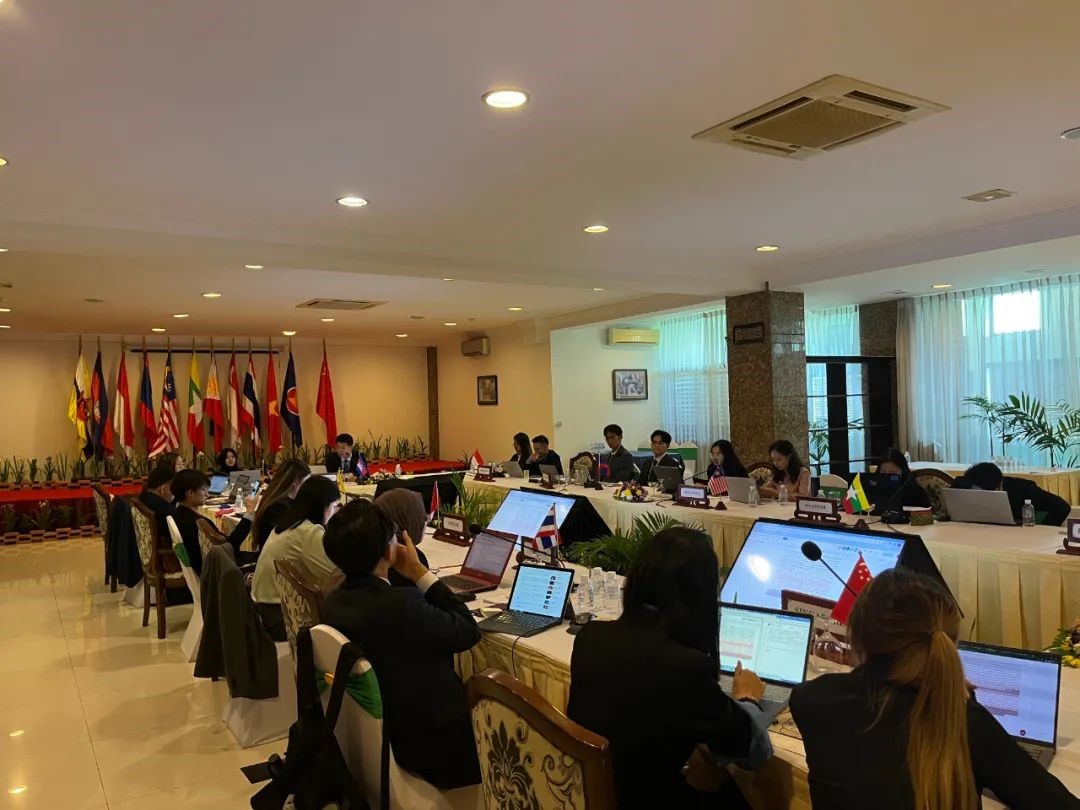
From June 18 to 27, a Chinese delegation consisting of more than 20 teachers and students from Peking University School of Public Health, Peking University School of International Relations, Peking University Regional and Country Studies Institute, and School of International Relations attended the China-Asean Young Leaders Mock Summit in Siem Reap, Cambodia. Organized by the ASEAN Foundation and supported by the China-Asean Foundation, the event aims to promote China-Asean diplomacy, raise awareness of ASEAN among the people of ASEAN and China, and enhance participants' decision-making knowledge and skills in ASEAN and China affairs. In strict accordance with the ASEAN rules of procedure, the conference, with the ASEAN Political Security Community, the ASEAN Economic Community and the ASEAN Social and cultural Community as its branches, organized more than 80 youth representatives from China and ASEAN countries to carry out friendly exchanges on issues such as China-Asean relations, digital economy and educational equity by holding simulated meetings and formulating outcome documents.
China and ASEAN are good neighbors, good friends and good partners. Since the dialogue process was launched in 1991, bilateral relations have developed by leaps and bounds. On April 25, 2023, under the strong support and guidance of the Ministry of Science and Technology of China and through the efforts of all parties, the China-Asean Public Health Science and Technology Cooperation Center led by Peking University was formally established to comprehensively facilitate the implementation of China-Asean health security cooperation. It is a practical way to strengthen China-Asean health governance capacity and one of the important tasks of the Center to train public health organization personnel who understand ASEAN's procedures by sending public health scholars to participate in the study of ASEAN consultation mechanism and personally visiting the ASEAN region for exchanges.
Feng Yikai, a doctoral candidate in the Department of Global Health at the School of Public Health of Peking University, played the role of the ASEAN secretariat and systematically studied the history and structure of ASEAN, the process of ASEAN meetings, the principles of issue negotiation and the way of decision-making under the guidance of the relevant person in charge of ASEAN Foundation. In the actual process, he undertook practical work such as coordinating disputes, documenting procedures, ensuring order, and interpreting rules, and gained a more realistic insight into the challenges and opportunities that may exist in the consultations between China and ASEAN on health-related issues. He exchanged views and ideas with representatives of the 10 ASEAN countries on such issues as universal health coverage, healthcare reform and health security, and practiced mutual respect and equality, forming a profound friendship and gaining a more vivid understanding of the work of health diplomacy and governance.